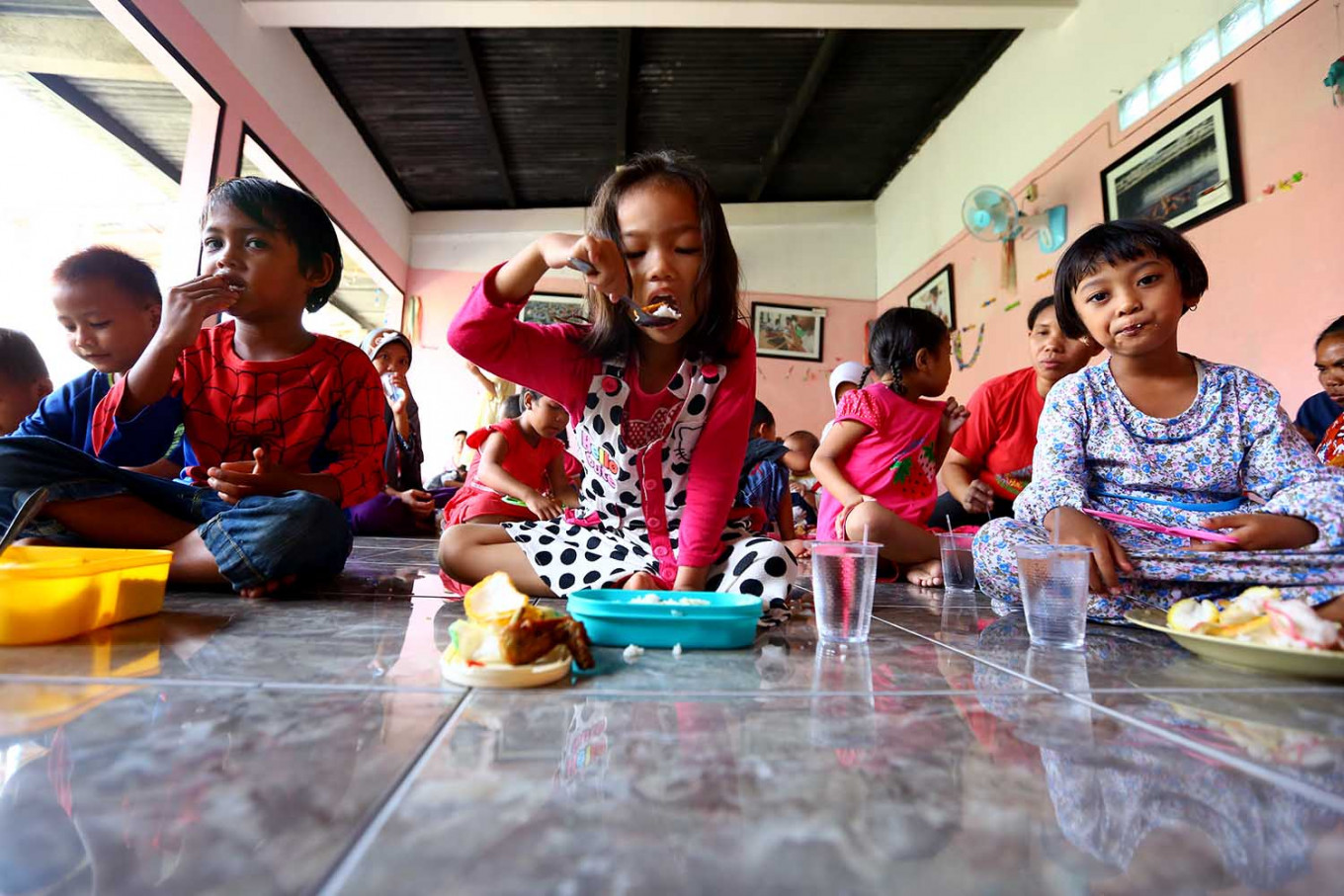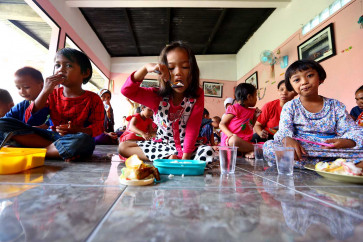Popular Reads
Top Results
Can't find what you're looking for?
View all search resultsPopular Reads
Top Results
Can't find what you're looking for?
View all search results‘Quo vadis’ school meals in Indonesia?
Despite the remarkable impact of school meal programs, a significant concern revolves around the lack of a distinct and comprehensive policy framework for Progas.
Change text size
Gift Premium Articles
to Anyone
I
n the vibrant city of Serang, Banten, just a stone's throw from Jakarta, 11-year-old Safira finds comfort in the school-provided lunch funded by the United Nations World Food Program (WFP) and global commodities trader Cargill Inc. This meal is often her only source of sustenance throughout the day.
Safira, the daughter of hardworking parents, a factory worker and a day laborer, struggles with hunger when the school fails to provide lunch. "When I'm very hungry, I can't concentrate on what the teacher is saying," she confides.
This daily provision of lunch not only nourishes children but also serves as a ray of hope for Safira and many other schoolchildren, ensuring they receive essential nourishment vital for their growth and learning.
Indonesia embarked on its mission to feed its future generation in 1997 with the initiation of the national school feeding program (PMT-AS). Despite interruptions after the program's decentralization in 2001, the core objective remained steadfast.
Between 2005 and 2015, fortified meals and crucial health and nutrition education programs laid the foundation for the Student Nutrition Program (Progas) in 2016. Progas represented a significant leap forward by offering locally sourced comprehensive breakfasts, meeting nutritional needs while instilling important character values. Covering disadvantaged areas affected by stunting, Progas reached an impressive 100,136 students across 632 schools in 20 provinces by 2018.
The impact of the Progas school meals program in Indonesia has been remarkable, significantly improving student outcomes. It led to a marked increase in attendance rates from 93.3 percent to 97.3 percent and a substantial decrease in the dropout rate from 24 out of 3,747 to eight out of 4,431 students.
Additionally, Progas facilitated dietary diversity, showing a notable rise from 38.1 percent to 49.2 percent. It also played a pivotal role in promoting better hygiene practices among students, reflected in increased percentages of students washing their hands with soap (from 88.7 percent to 95.6 percent) and brushing their teeth twice daily (from 61.7 percent to 73 percent).



















